Interview: Carolyn Steel On Why Food is Key to a Good Life
Food can save us, according to Carolyn Steel
This post may contain affiliate links. Learn more
by Lucy Cleland
Covid-19 has given us the opportunity to change the status quo, and it begins at the kitchen table. Lucy Cleland gorges on a lesson from Carolyn Steel on why food should be at the heart of everything we do
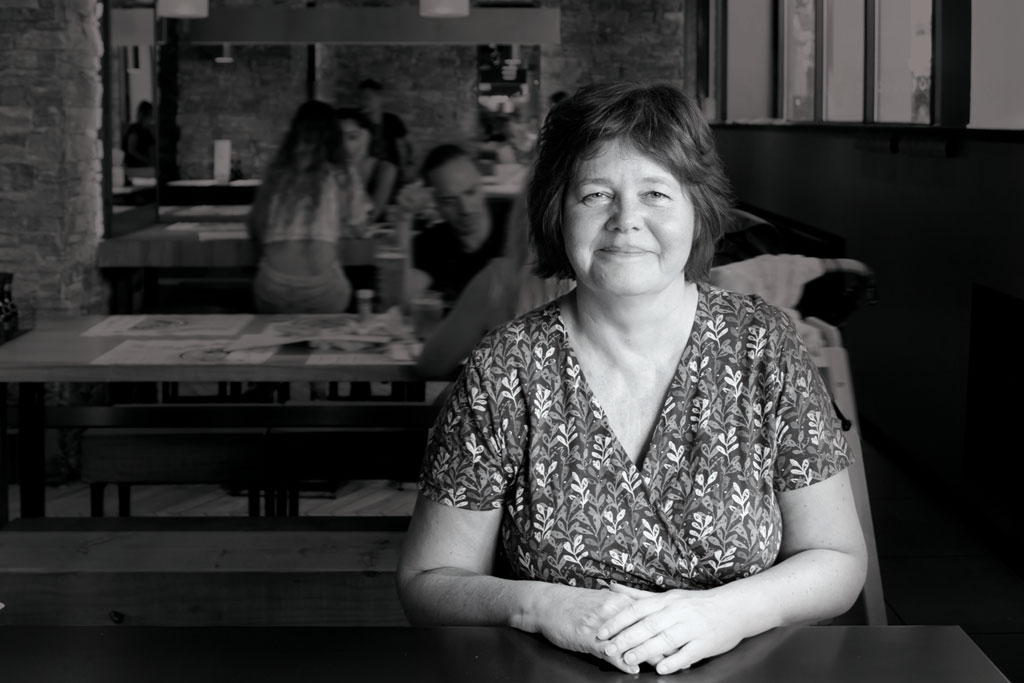
A picture paints a thousand words or, in the case of Carolyn Steel’s book, Sitopia, 111,000 give or take. The painting she’s showing me is Lorenzetti’s The Allegory of Good and Bad Government (1338-9), which hangs in Siena’s Palazzo Pubblico. While the image beautifully sums up, in pictorial form, the author’s utopian idea of a food ‘sitopia’ (from the Greek sitos, food + topos, place), we are here to discuss her own magnum opus, written almost 700 years afterwards.
High up in her north London flat, the bosky tree line of Regent’s Park and the intervening urban constructions serve as a comparable modern-day vista.
Sitopia was the only book I read during lockdown, and I felt the spirit of revolution course through me as I absorbed the depth and breadth of ideas and research that had gone into it. Despite this complexity, at the end it all seemed so damn simple: what we urgently need is to create (or recreate) our concept of ‘a good life’.
What I wanted to hear from the horse’s mouth is what exactly – and practically – this means and how each and every one of us can play our part here and now. So, while we congenially ate asier (home-pickled Danish cucumbers grown on Carolyn’s bijou balcony) with cheese and crackers, in reality I was attending a one-to-one lecture from the woman whose ideas every economist, farmer, politician, teacher, philosopher, architect – scratch that, every single person – should sit up and listen to.
UK Staycation Swaps: Britain’s Best Destinations
First, back to Lorenzetti’s picture, which, Carolyn says, ‘is my representation of the ideal’. A vast fresco, 20m or so in length, it depicts the city of Siena on one side and the countryside on the other, with the overriding vision that the two are fundamentally connected, the city wall acting as a membrane through which all life ebbs and flows. There are huntsmen leaving the city, pigs going to a market, urban flocks of sheep, a woman with a chicken in her arms… ‘It’s a partnership [of city and country] and we’ve completely lost that idea,’ she explains.
Carolyn’s passion for this picture is relevant because she’s not an author by trade. A Cambridge-educated architect with the London firm Kilburn Nightingale, she says it was never just buildings, with all their idiosyncratic vernacular, that stirred her: ‘It became clear that buildings per se weren’t that interesting to me – it was something to do with them, but it took me 20 years to work out that it was actually our relationship with them that I was interested in.’ Probing further, it wasn’t just this either. Carolyn eventually discovered that ‘life’ was her subject, and food – ‘which is life because it’s the one single thing that joins us all’ – became the lens through which she studied it.
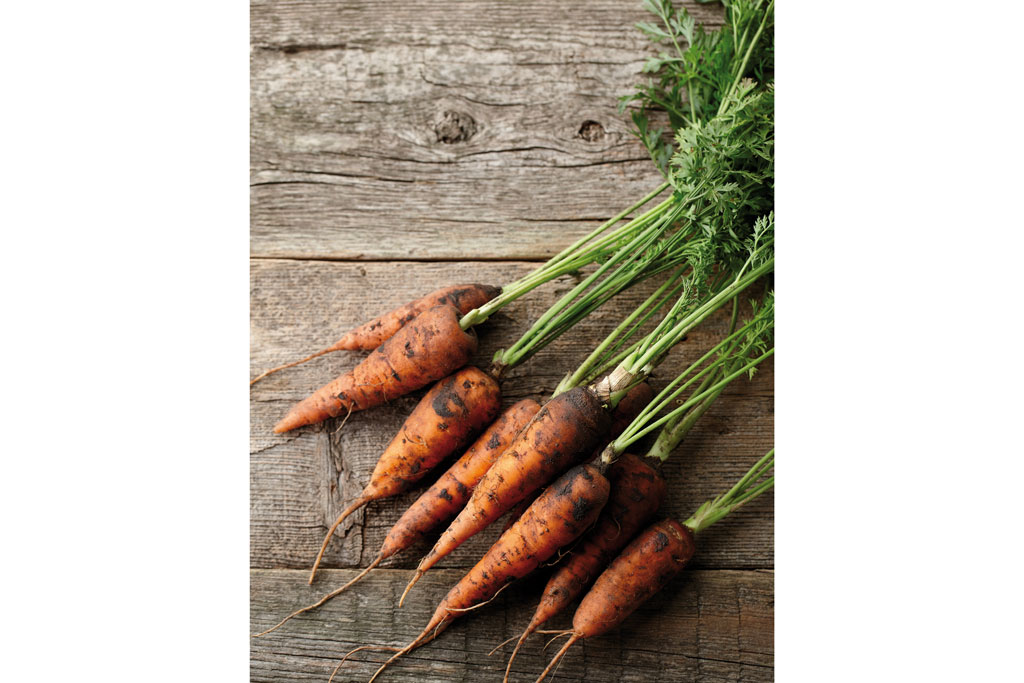
No niche choice then. But it is here that Carolyn’s clarion call for a better way of living is crystallised. If food is life, then food is the most important thing there is. And if it’s the most vital thing there is, it should be valued far higher. This, she argues, is where we are massively failing. The commodification of food (life) has led to its degradation, which in turn has led to humanity’s dissatisfaction. A simple summation perhaps, but read the book and you’ll see how she gets there.
‘We’re living in the third century of the post-enlightenment, industrialised idea of what a good life is – which is all about problem- solving: rationality, efficiency and making stuff cheaper… and through that ideal we were supposed to get rich and happy. But it’s a fantasy. It never did work. Yes, we’ve made some material gains – but why do we never ask what we sacrificed for all that wealth creation?’
How to Use Foraged Ingredients
Well, the answer to that question can range from sacrificing our health (diabetes, obesity, heart disease, cancer) and wellbeing (anxiety, depression, tech addiction) to sacrificing our children and family (working such long hours and, pre-Covid at least, commuting between home and work) to quite literally sacrificing ourselves. Our obsession with accumulation, production and ‘problem-solving’ has sent us charging into an ecological deficit, an imbalance in which we have stopped living in harmony with the earth that nourishes and feeds us – leaving us perilously close to being ejected from it as a result of climate change and its devastating effects, and through land so denuded it can’t produce food anymore – so that, in effect, we can’t eat. Ergo, we can’t live.
All of this, admittedly, I’m making in sweeping statements, paraphrasing vast swathes of Sitopia, but the upside is that Carolyn believes we should all be optimistic and that coronavirus could show us the way. ‘Covid is a once- in-a-generation opportunity to rethink our idea of a good life,’ she says. ‘So many people have been working from home, not having to do the nightmarish four-hour commute, crammed like sardines on a train. They’re spending more time with their children, they’re growing their own food. I know some people are suffering massively, but for those who were theoretically “winning” in the old system [house, family, job, garden], the vast majority are saying, “I’m not going back to that, what were we doing? This is much better.”’
Melissa Hemsley on Zero-Waste Cooking
So what does ‘better’ look like and how can we get there? For this, she calls on Epicurus. ‘The secret to a good life is to embrace necessity and get pleasure out of it. Epicurus says you have to eat, and we’re naturally wired up to get pleasure out of eating, so let that be your pleasure. Don’t complicate things.’
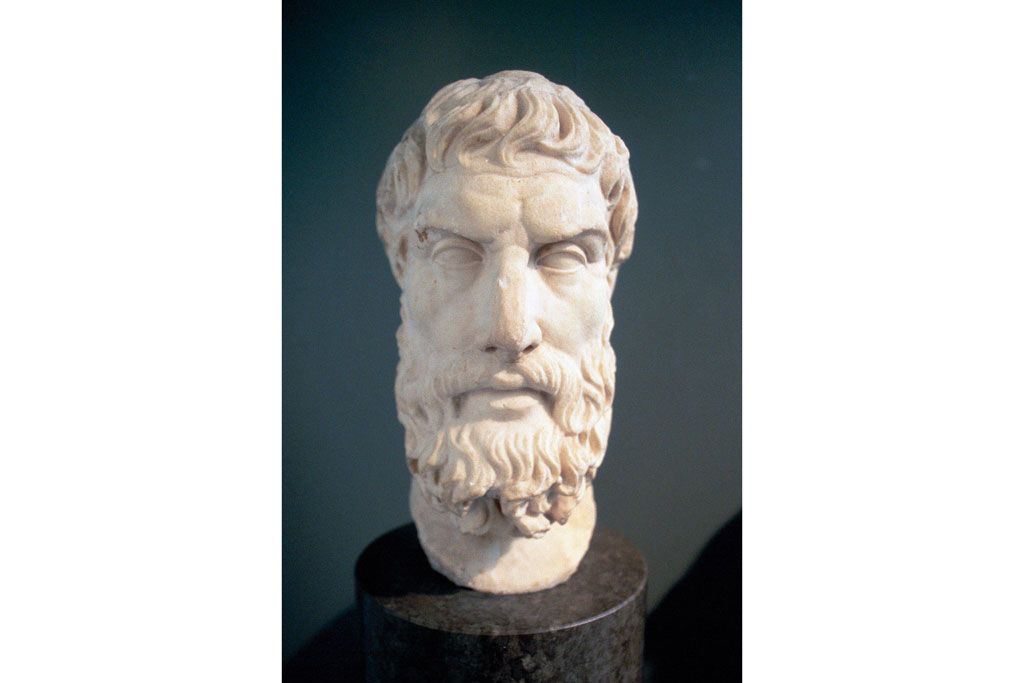
Epicurus had the right idea: to find pleasure in necessity
Yes, but what does this equate to in reality? It means, according to Carolyn, putting food first and foremost, taking inspiration from our dying tribes of hunter-gatherers. ‘This is when humanity reached its apex,’ she says. ‘The economy of the hunter-gatherer is a shared meal each day; food is the most precious thing and they share it round a fire, equitably. Our human needs for both nature and society are met.’ Of course, she’s not suggesting we all don loincloths and start hunting round Hyde Park for fat pigeons to roast, but the hunter-gatherer model answers our eternal question of how to live well by balancing our social needs with our natural needs, something that modern life and, in particular, city life, doesn’t offer.
Fair enough, but still, for us, here and now? ‘OK, it means halving the amount of meat and dairy we consume globally, with a four-fifths reduction of consumption in the west. It means halving food waste. It means using technology well to balance our lives with nature and to create smarter food logistics, and it means eating better food. Better food is food – as Carlo Petrini, the founder of the International Slow Food Movement, says – that is good, clean and fair.
“Good” means the landscape the food came from wasn’t denuded or destroyed to produce the food, which means regenerative farming practices; it means the animals weren’t abused, they had a good life and a good death; it means the people who produced the food were paid a decent wage and weren’t enslaved or quasi- enslaved. “Clean” means non-polluting: you’re not chucking chemicals in rivers that either poison them or create algae blooms that suffocate the fish.
“Fair” means that we’re in this together. If I eat well then you deserve to eat well too – an equitable system where people are treated with dignity. My metaphor for a good society is one in which everyone gets to eat well – everything flows from that.’ Do we want a good society? Do we want to eat well? Do we want to survive? If the answer to those three questions is a resounding yes, then we want a revolution. It begins here.
Sitopia by Carolyn Steel (Penguin, £16.99)
Reading List
Carolyn’s recommendations for deeper understanding
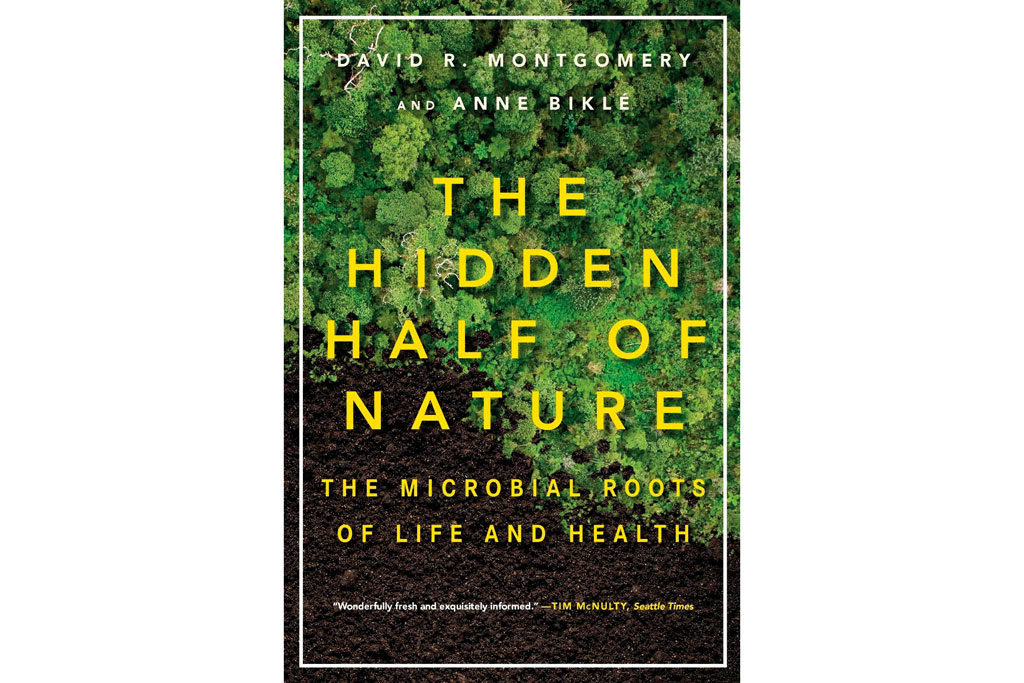
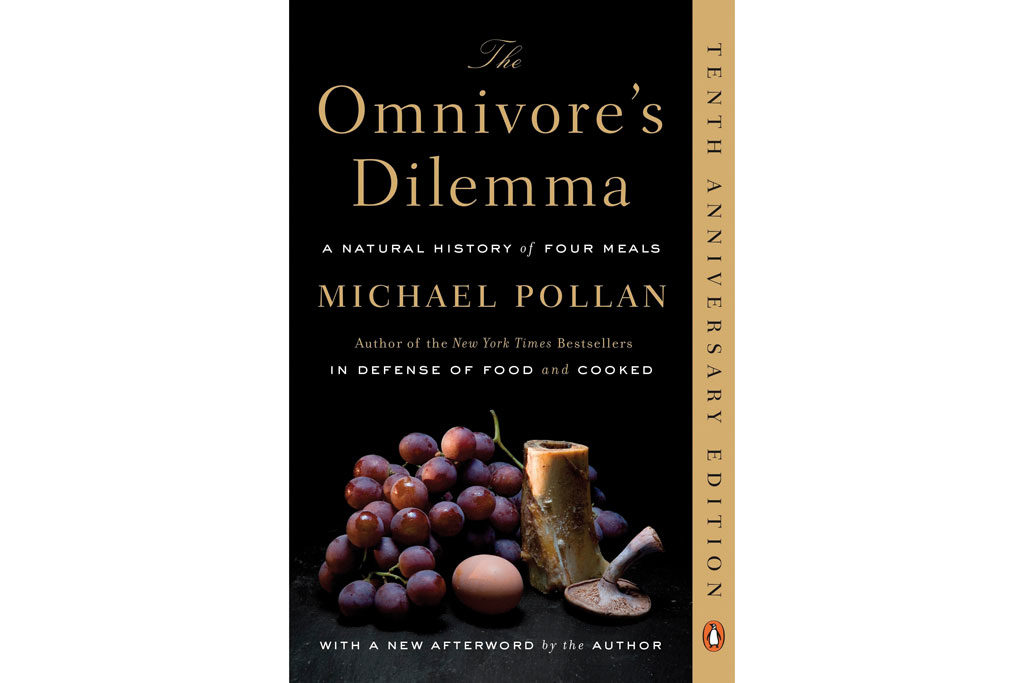
The Omnivore’s Dilemma
By Michael Pollan
A forensic exposé of the modern US food industry.
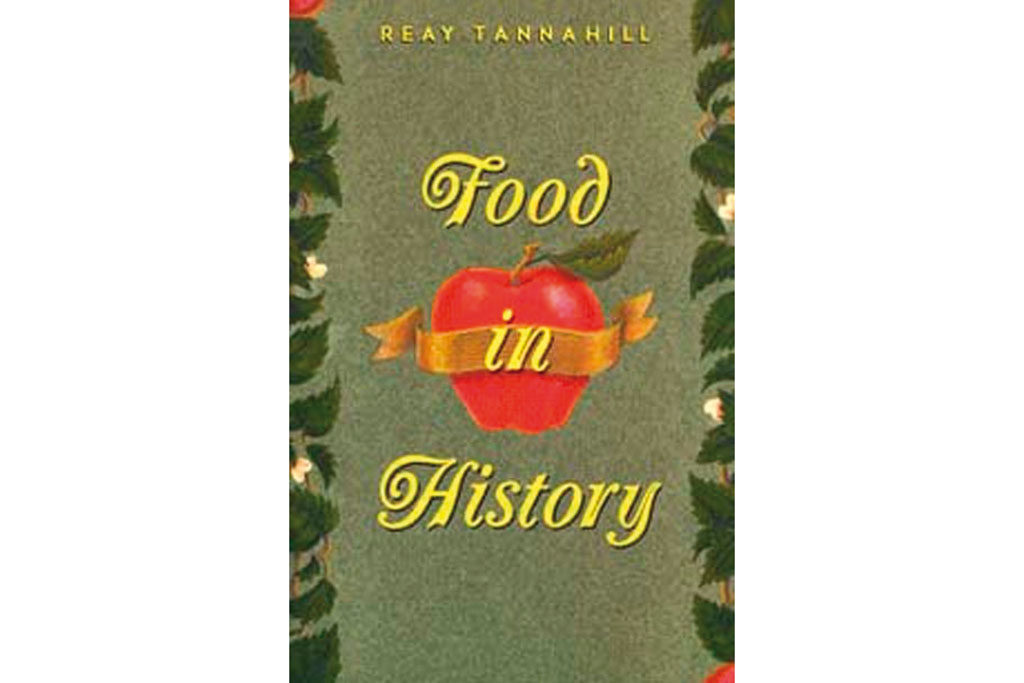
Food in History
By Reay Tannahill
A colourful tour of global food cultures – the first book on food I ever read.
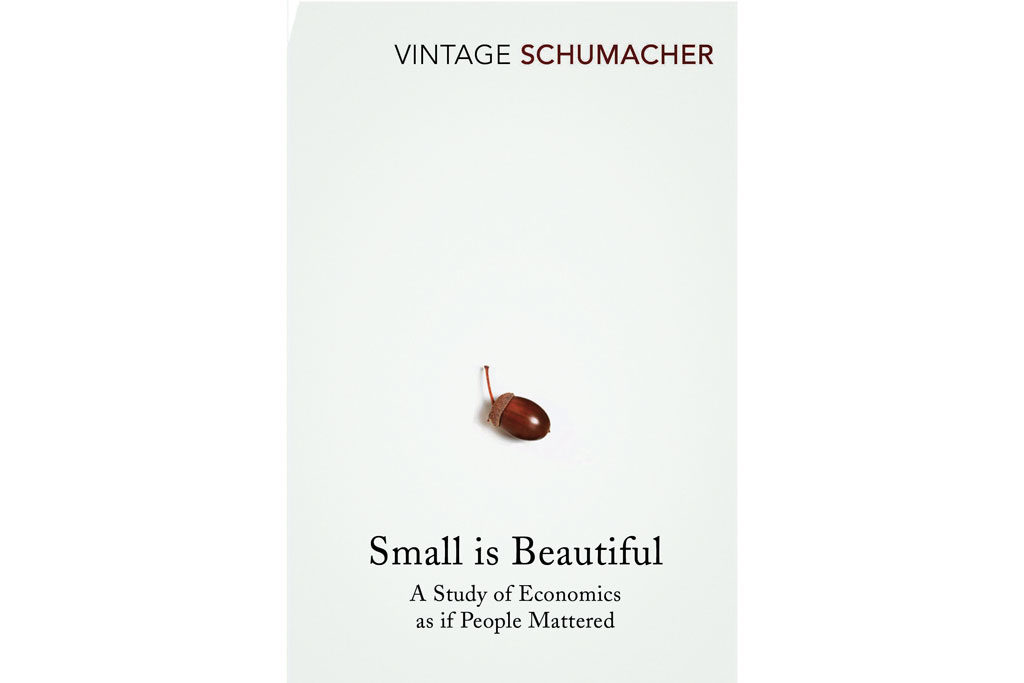
Small is Beautiful
By E F Schumacher
The most important book about economics ever written about why capitalism fails.
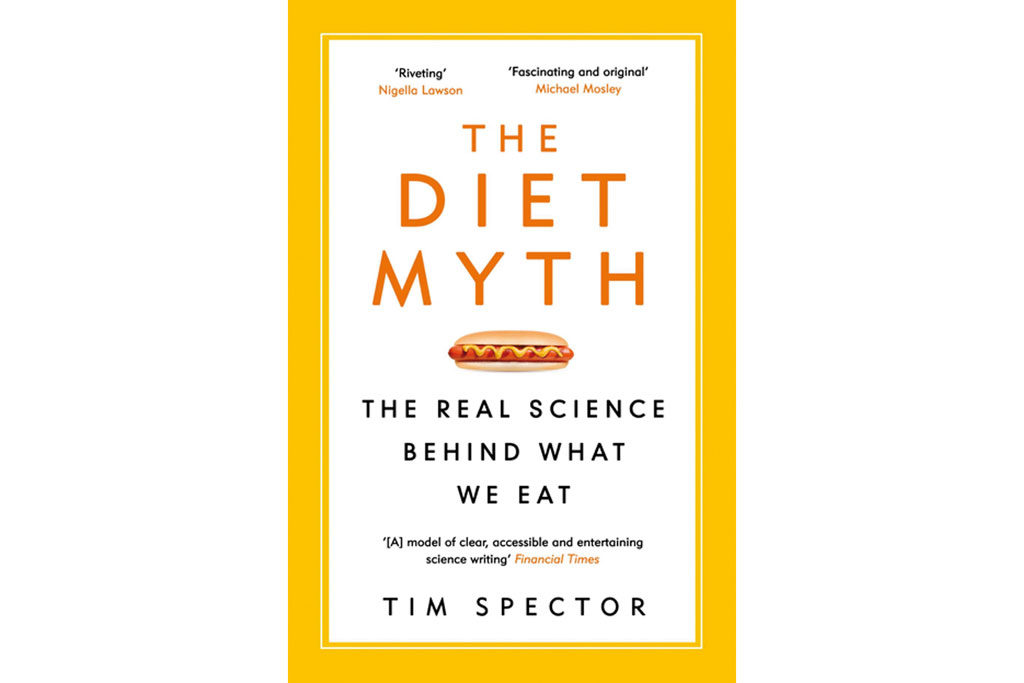
The Diet Myth
By Tim Spector
The myth-busting truth about diet and health from the UK’s leading microbiome expert.
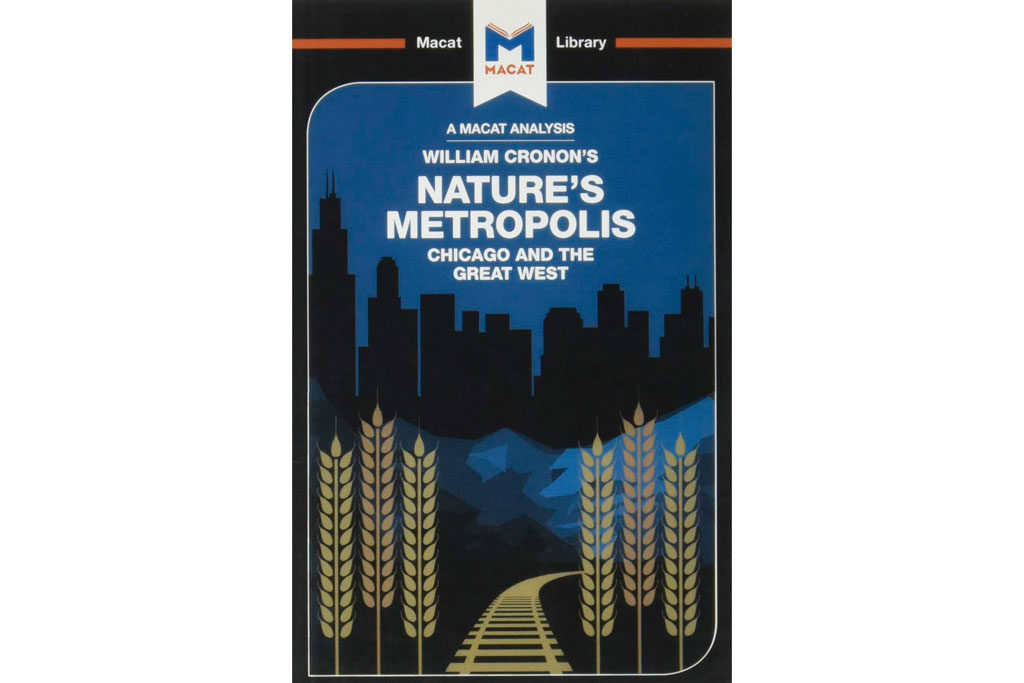
Nature’s Metropolis
By William Cronon
A brilliant description of the invention of industrial food I 19th century Chicago.

The Hidden Half of Nature
By David R. Montgomery and Anne Biklé
A fascinating study of the living soil and its direct links to our health.
Carolyn’s Food Heroes
Julie Brown
Founder of Growing Communities, Hackney – a community box scheme focussed on education and sustainable food models.
Robin Harford
Inspirational forager, educator and visionary.
Patrick Holden
Organic farmer, founder of the Sustainable Food Trust and proponent of true cost accounting for food.
Simon Farleigh
Dairy farmer and author of the best book I’ve read on the meat dilemma, ‘Meat, A Benign Extravagance‘.
Jeanette Orrey
The original dinner lady who has led the campaign for better food in schools.
Tristram Stuart
Pioneering food waste campaigner and author of self-explanatory book, ‘Waste: Uncovering the Global Food Scandal‘.
A Chef’s Guide to Sustainable Dining / The Best Healthy Meal Delivery Services
